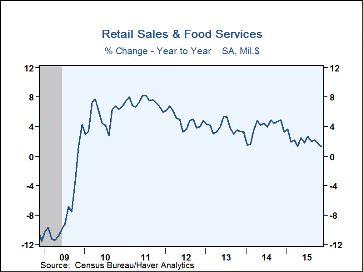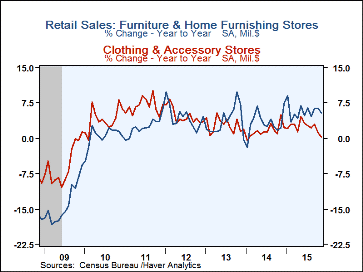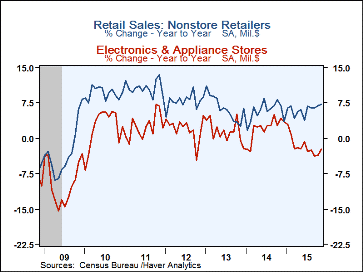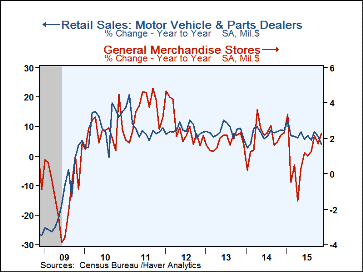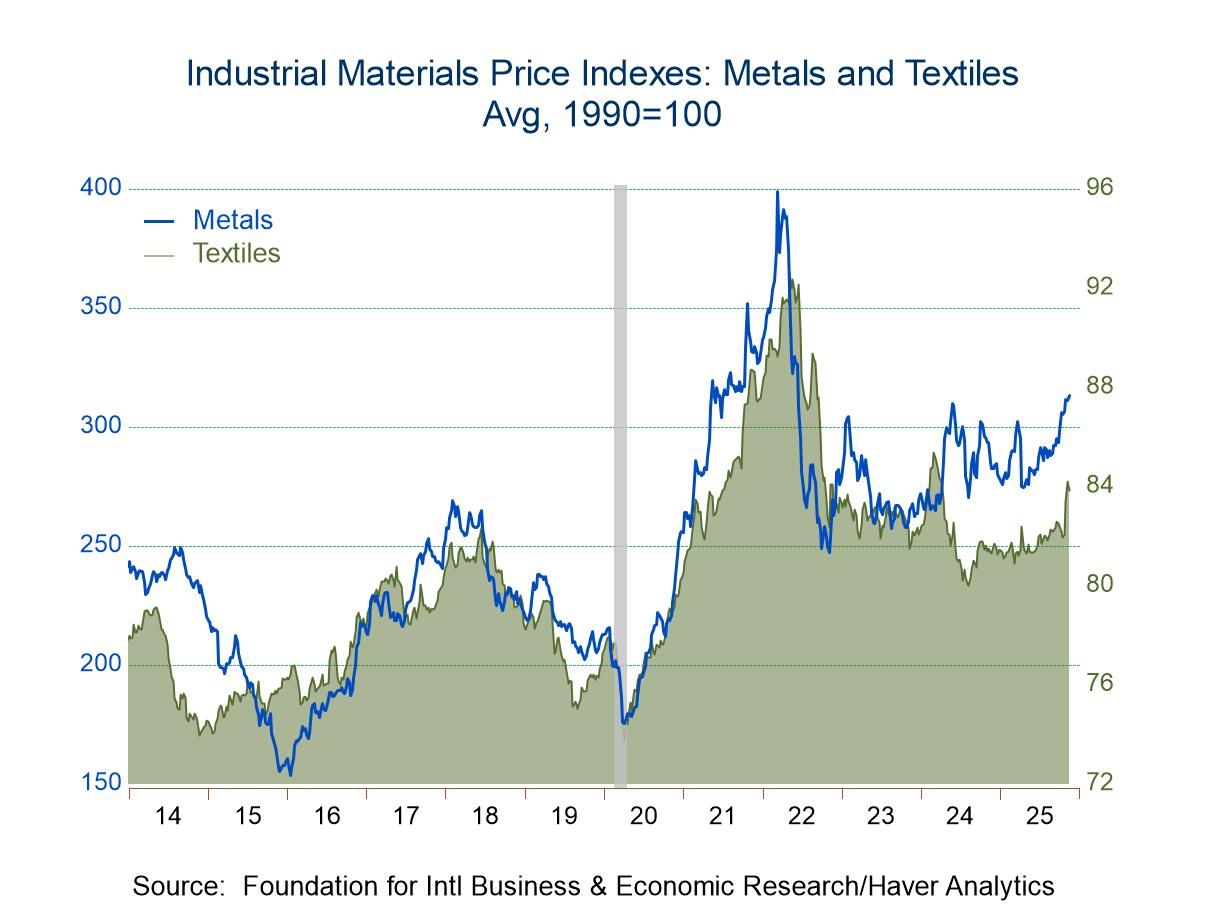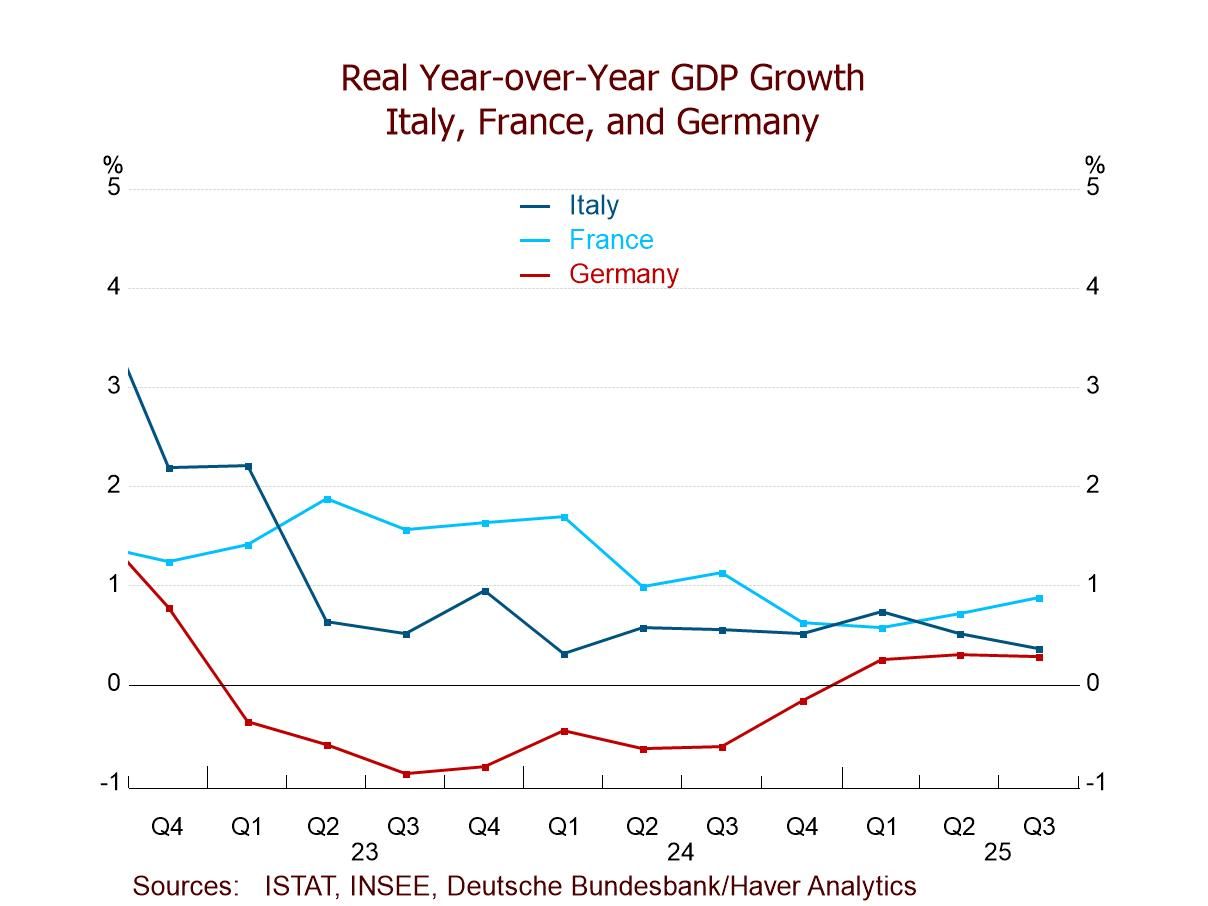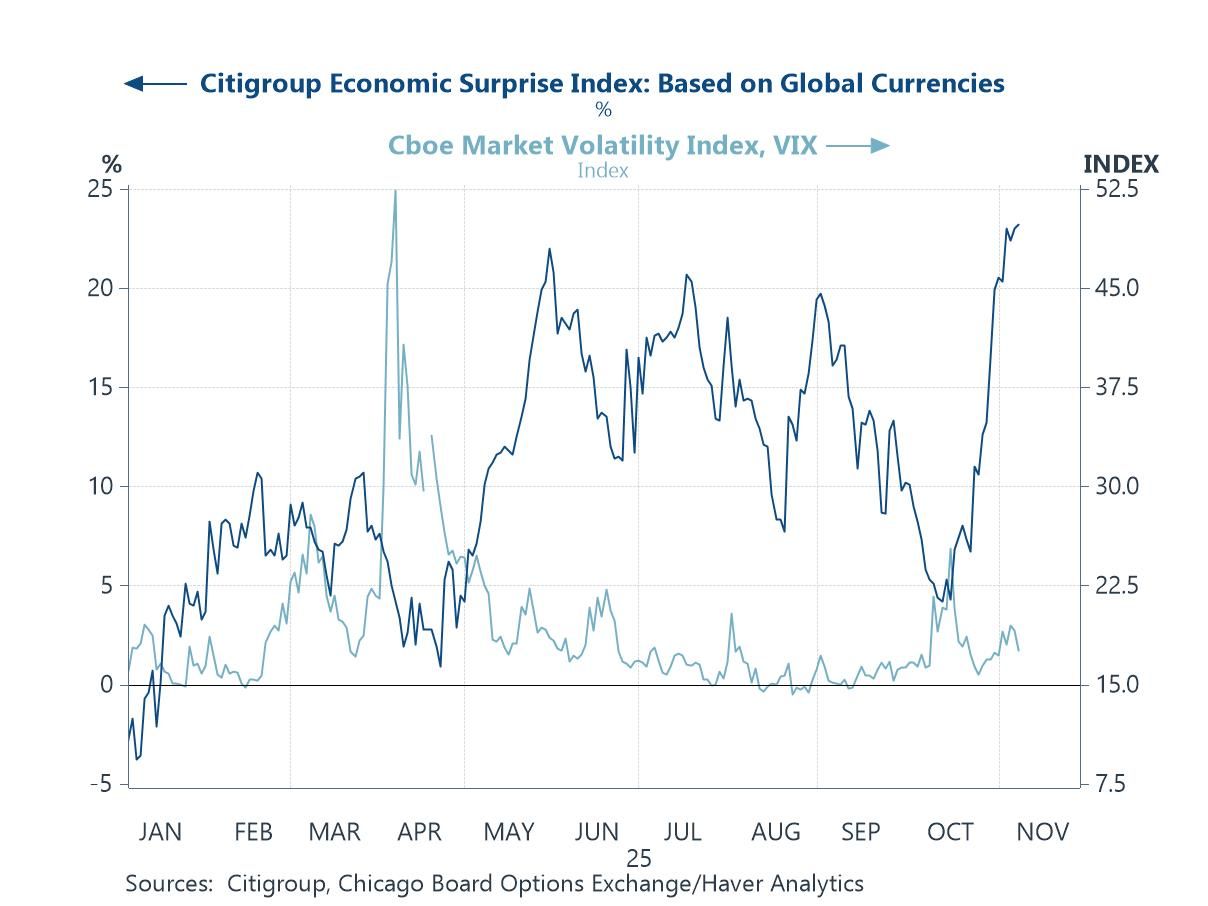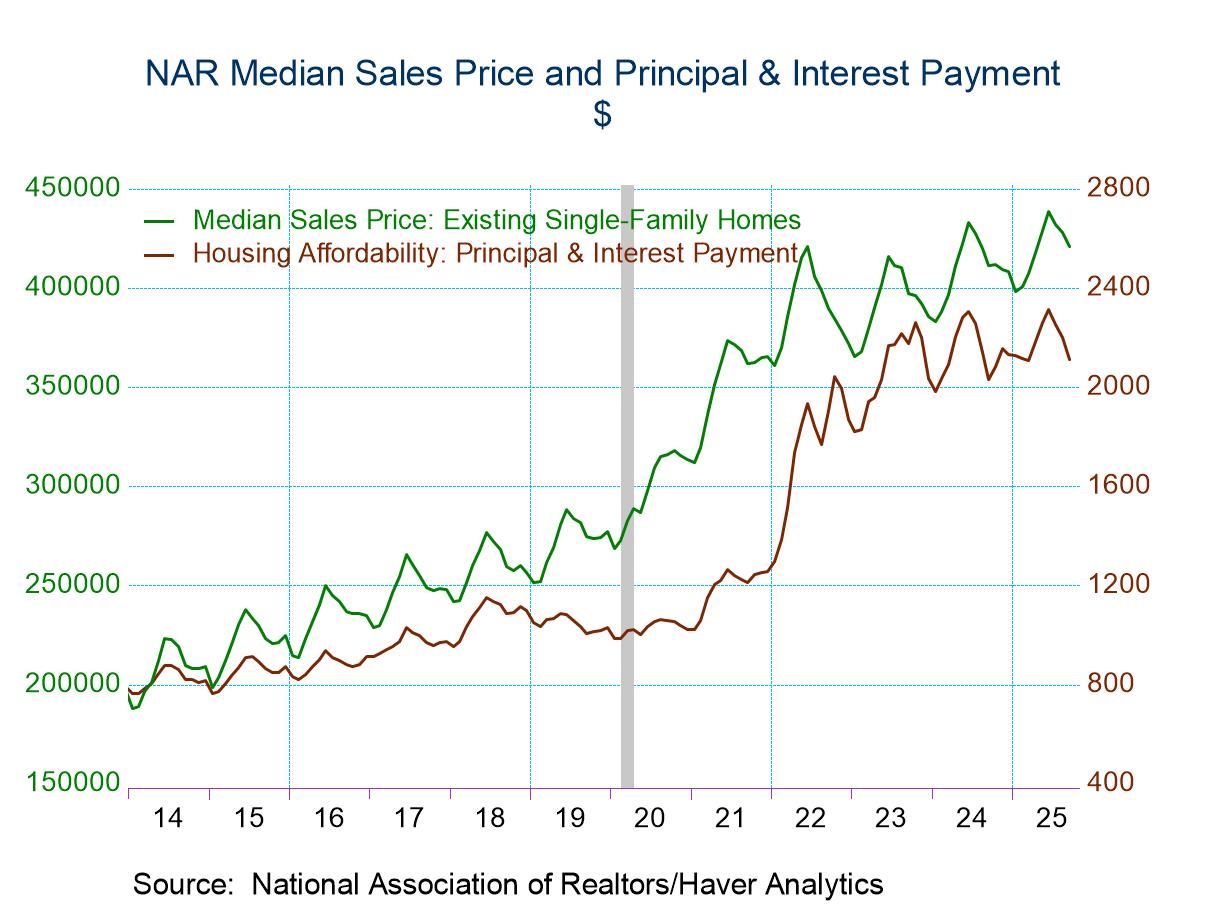 Global| Dec 11 2015
Global| Dec 11 2015U.S. Retail Sales Show Widespread Improvement
by:Tom Moeller
|in:Economy in Brief
Summary
Consumers began to open their wallets in advance of the holiday season. Purchases at retail stores and restaurants increased 0.2% during November following little change in the prior three months, which were unrevised. The latest [...]
Consumers began to open their wallets in advance of the holiday season. Purchases at retail stores and restaurants increased 0.2% during November following little change in the prior three months, which were unrevised. The latest increase fell short of expectations for a 0.3% rise in the Action Economics Forecast Survey. Sales excluding autos gained a firmer 0.4% and also made up for weakness in the prior four months. A 0.3% gain was expected. During the last ten years, there has been a 92% correlation between the change in retail sales and the change in real GDP.
Sales in the retail control group increased 0.6%, the largest rise since July. These purchases do not include autos, gasoline, building materials and food services and align with the consumer spending estimates in the GDP accounts.
Light motor vehicle sales fell 0.4%, down for the second straight month. The decline compares to a 0.3% drop in unit motor vehicle sales. Falling prices continued to lower sales at gasoline service stations where a 0.8% decline was the fifth in as many months.
Sales in other discretionary categories were firm. Apparel store sales increased 0.8% (-1.6% y/y) following three months of decline. Sales at sporting goods, hobby, book & music stores also jumped 0.8% (5.0% y/y) after a 0.1% uptick. Restaurant sales increased 0.7% (5.4% y/y), the strongest rise since April. General merchandise store sales grew gained 0.7% (1.4% y/y) after a 0.1% dip and purchases at electronics & appliance stores rose 0.6% (-1.8% y/y), also following a 0.1% dip. Nonstore retailers sales increased 0.6% (10.3% y/y) after a 1.4% spurt. Holding back the total's rise was a 0.3% decline in sales (+4.9% y/y) at furniture & home furnishing store sales, but it was the first decline in three months. Also down 0.3% (+4.1% y/y) were sales at building materials & garden supply stores, off for the third month in the last four.
In the nondiscretionary sales categories, food & beverage store sales increased 0.7% (0.8% y/y) following two months of decline. Sales at health & personal care stores were little-changed (+4.6% y/y), following a 0.5% rise.
The retail sales figures are available in Haver's USECON database. The Action Economics figures are in the AS1REPNA database.
Do We Know What We Owe? Consumer Debt as Reported By Borrowers and Lenders from the Federal Reserve Bank of New York is available here.
| Retail Spending (%) | Nov | Oct | Sep | Nov Y/Y | 2014 | 2013 | 2012 |
|---|---|---|---|---|---|---|---|
| Total Retail Sales & Food Services | 0.2 | 0.1 | -0.1 | 1.5 | 3.9 | 3.7 | 5.0 |
| Excluding Autos | 0.4 | 0.1 | -0.5 | 0.9 | 3.1 | 2.7 | 4.1 |
| Non-Auto Less Gasoline, Building Supplies & Food Services | 0.6 | 0.2 | 0.0 | 2.9 | 3.3 | 2.7 | 3.6 |
| Retail Sales | 0.2 | 0.0 | -0.1 | 1.0 | 3.7 | 3.8 | 4.9 |
| Motor Vehicle & Parts | -0.4 | -0.3 | 1.4 | 4.3 | 7.5 | 8.3 | 9.0 |
| Retail Less Autos | 0.3 | 0.1 | -0.6 | 0.1 | 2.6 | 2.6 | 3.9 |
| Gasoline Stations | -0.8 | -1.0 | -4.8 | -19.7 | -2.7 | -0.7 | 4.3 |
| Food Service & Drinking Places Sales | 0.7 | 0.3 | 0.5 | 5.4 | 6.2 | 3.4 | 5.9 |
Tom Moeller
AuthorMore in Author Profile »Prior to joining Haver Analytics in 2000, Mr. Moeller worked as the Economist at Chancellor Capital Management from 1985 to 1999. There, he developed comprehensive economic forecasts and interpreted economic data for equity and fixed income portfolio managers. Also at Chancellor, Mr. Moeller worked as an equity analyst and was responsible for researching and rating companies in the economically sensitive automobile and housing industries for investment in Chancellor’s equity portfolio. Prior to joining Chancellor, Mr. Moeller was an Economist at Citibank from 1979 to 1984. He also analyzed pricing behavior in the metals industry for the Council on Wage and Price Stability in Washington, D.C. In 1999, Mr. Moeller received the award for most accurate forecast from the Forecasters' Club of New York. From 1990 to 1992 he was President of the New York Association for Business Economists. Mr. Moeller earned an M.B.A. in Finance from Fordham University, where he graduated in 1987. He holds a Bachelor of Arts in Economics from George Washington University.


